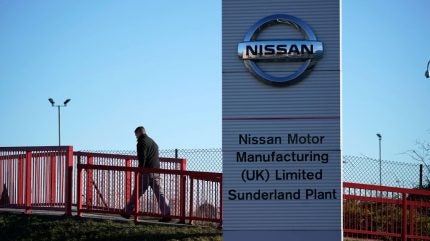
The UK’s professional body for mechanical engineers (the Institution of Mechanical Engineers – IMechE) has voiced concern over the long-term future of the UK’s automotive sector.

Discover B2B Marketing That Performs
Combine business intelligence and editorial excellence to reach engaged professionals across 36 leading media platforms.
In a report, the IMechE said that the UK is ‘behind the curve’ as it progresses its transition to net zero fleet and Net Zero goals.
EVENT: EV Batteries: Electrified Vehicle Engineering
The IMechE’s report said that many significant hurdles have yet to be effectively addressed and the UK’s future competitive position as a global vehicle manufacturing nation is at stake.
The report also noted that the zero emissions vehicle (ZEV) mandate, a scheme whereby auto-makers’ fleets sold in the UK would have to be comprised of an increasing percentage of ZEVs each year from 2024, ‘cannot successfully drive this transition unless it is feeding a receptive market’.
Year to date (Jan-Aug), all-electric share of the car market has edged up to 17.2% and is expected to rise further to 18.5% by the end of the year thanks to increasing model choice – with some 364,000 BEVs registrations forecast for the year by the SMMT (on a forecast 2m total market, that would amount to around 18% share). So, despite this growth, this will still be shy of the 22% share required by the ZEV mandate. If manufacturers fail to meet that share, they could incur hefty fines.
The IMechE called for more government policies besides the ZEV mandate to encourage EV take-up in Britain. It said it is clear that a ‘suite of other policies is needed to make electric vehicles an economically viable and practical proposition to consumers’.
More support and incentives for existing and potential UK-based car manufacturers is also required, the IMechE said.
Among the professional body’s recommendations are:
- On UK-EU trade, the body called for work towards trade rules that align with achievable transition goals of both the UK and the EU auto-industries;
- Create a new automotive ‘task force’ be formed to work on creating the right conditions for foreign direct investment that will maintain and build the UK’s manufacturing capacity and supply chains;
- Create a nationwide skills and retraining plan for the auto industry with a focus on upskilling the entire supply chain and aftermarket to enable the transition to zero emission vehicles;
- Develop an auto-specific strategy to ensure the UK can source, mine, and process the materials required for a domestic electric vehicle supply chain;
- Develop, patent, and exploit technologies that make recycling of batteries economically viable;
- Boost electric charge-point deployment via mandated targets from central government and programmes for measuring what works at a local level should be developed between local governments and researchers, with central government learning from best practice and adjusting policy accordingly over time. It also said the UK government should consider underwriting the investment risk of the charge point providers.
“Many significant hurdles have yet to be effectively addressed and the UK’s future competitive position as a global vehicle manufacturing nation is at stake. With urgent action the situation is recoverable but the window of opportunity to do so is closing,” said former IMechE President Terry Spall.
EVENT: EV Batteries: Electrified Vehicle Engineering
12 November 2024 at the British Motor Museum in Warwick
The 2024 edition of the IMechE’s EV Batteries conference will give all attendees the opportunity to gain insight into the engineering challenges associated with bringing battery electric vehicles (BEVs), plug-in hybrid electric vehicles (PHEVs) and hybrid electric vehicles (HEVs) to market.






